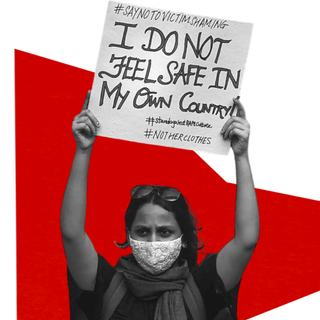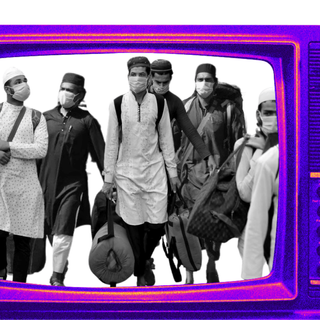While Indians across religious groups see religious diversity as an important part of being “Indian,” most oppose inter-religious marriages or relationships, a new survey shows.
The survey, titled “Religion in India: Tolerance and Segregation,” conducted by the Pew Research Centre, included about 30,000 people from all the major religions — Hindu, Muslim, Sikh, Christian, and Jain — in proportion to their population in the country.
They “live together separately,” the report notes. The findings reveal contradictions in terms of how Indians perceive their religion and national identity. Many Indians believe in the importance of religious diversity and being tolerant towards others’ religions — almost 80% of those surveyed said that respecting all religions was an important part of being Indian.
But people also believed it is important to keep their communities segregated — in terms of physical space and through marriage. Hindus and Muslims surveyed especially felt that they did not have a lot in common with one another and were not comfortable living in mixed neighborhoods. Significant percentages of both groups favored stopping inter-faith marriages.
The Pew survey comes in the backdrop of the infamous “anti-love jihad” laws that have emerged in many states. The motivation, as politicians have argued, is to protect Hindu women from “forceful” Islam conversions for marriage, a thesis that has little basis in actual fact or statistics. But the “love jihad” bogey in itself indicates a growing intolerance towards inter-faith marriages.
Interestingly, the study notes that the resistance toward inter-faith marriage is uniform among all religious groups.
Related on The Swaddle:
Woman’s Conversion to Islam Is Irrelevant In Ensuring Safety of Interfaith Couples: Allahabad HC
Among Hindus, almost two-thirds of the respondents felt it was important to prevent interreligious marriages, for both men and women. Among the Muslim participants, 80% of people said it was important to stop women from marrying outside their faith and 76% of people expressed the same reluctance with letting men engage in interfaith relationships.
The number of Hindus who believe in preventing women from marrying outside their religion was higher among the subset of Hindus who voted for the ruling Bharatiya Janata Party, the study notes.
The same trend is found across caste lines — overall, 64% of all Indians said it is important to stop women from marrying outside their caste. Hindu, Muslim, Sikh, and Jain participants considered this a high priority, whereas Christians and Buddhists found it to be “somewhat” important.
The fact that more Indians are invested in preventing women from marrying outside their religion and caste than men is rooted in the notions of “caste purity” and “religious honor.” People in inter-caste marriages face the threat of “honor killings,” especially in cases involving a dominant-caste woman marrying an oppressed caste man. For instance, Telangana has witnessed at least 50 murders related to inter-caste love marriages since 2014.
The statistics are equally concerning in other states. Women have also been targets of communal sexual violence in an attempt by religious extremists to “dishonor” a whole community.
Other findings of the survey note that nearly 60% of all Hindus feel that being Hindu and speaking Hindi makes them more authentically Indian; yet around 65% of this group also believes that religious diversity is a positive thing.
The results of the survey are not as paradoxical as they appear. They show that Indians are largely tolerant of other religions while valuing their own religion strongly and marriage is seen as an important way to do the latter — by maintaining religious purity and segregation from other communities.
“Indians’ concept of religious tolerance does not necessarily involve the mixing of religious communities. While people in some countries may aspire to create a “melting pot” of different religious identities, many Indians seem to prefer a country more like a patchwork fabric, with clear lines between groups,” the report concluded.




